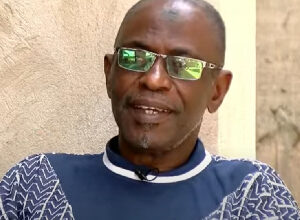The announcement by Saudi Arabia and other OPEC+ oil producers on Sunday of further oil output cuts of around 1.16 million barrels per day is going to be a test case for the Government of Ghana’s Gold-for-Oil policy, energy think tank the Africa Center for Energy Policy (ACEP), has said.
According to the Executive Director of ACEP, Saudi Arabia and other OPEC+ oil producers is like to shoot crude oil prices up on the international market which will also affect the domestic market.
The action of the Saudi Arabia and other OPEC+ oil producers comes a day before a virtual meeting of an OPEC+ ministerial panel, which includes Saudi Arabia and Russia, and which had been expected to stick to 2 million bpd of cuts already in place until the end of 2023.
Oil prices last month fell towards $70 a barrel, the lowest in 15 months, on concern that a global banking crisis would hit demand. Still, further action by OPEC+ to support the market was not expected after sources downplayed this prospect and crude recovered towards $80.
When fuel prices were dropping in Ghana, the government attributed it to the Gold-for-oil policy but OPEC+’s action is going to determine whether or not the policy is viable, Mr Ben Boakye said.
Speaking on the News 360 on TV3 with Martin Asiedu Darteh on Monday April 3, he said “From where we sit it is our expectation that the prices will go up all things being equal. If the market is working as it has been then prices should go up. We saw prices decline close to 7 dollars per barrel. Today, it is trading at around 82, even earlier in the day it was trading at 85 dollars per barrel.
“When the prices kept declining and to almost 70 dollars per barrel government kept saying that it wasn’t the international market but rather it was the effect of gold-for-oil.
“This is the test case for us to know whether indeed the gold-for-oil can push the prices down even when the international market is dictating the prices. if we are to hold that position as the truth that I was rather gold for oil then we should expect that prices would either stay the same way or it will decline.”
It is recalled that the Vice President of Ghana Dr Mahamudu Bawumia recently said the Gold-for-Oil policy has resulted in a decline in fuel prices.
Speaking at a forum organized by the Bulk Oil Storage and Transformation (BOST) company in Accra, on Wednesday, March 15, Dr Bawumia said “I am happy to note that the Gold-for-Oil policy is the first policy of its kind in Ghana since independence to address this type of balance of payment crisis that we face.
“In my humble opinion, this is the most important macroeconomic policy intervention to deal with the exchange rate depreciation, fuel prices, food prices, and inflation nexus that we have had.
“As a result of the policy, we have not only seen a decline in the price from 23 Cedis per liter to around 12 Cedis per liter, we have also seen stability in the exchange rate as we predicted. I say all thanks should go to the Ministry of Energy, to BOST, to NPA, the Bank of Ghana, the Ministry of Lands and Natural Resources and the PMMC who rose up to the occasion when we faced those crises of rapidly depreciating currency along with rapidly increasing fuel, transportation, and food prices.”
source: 3news.com




